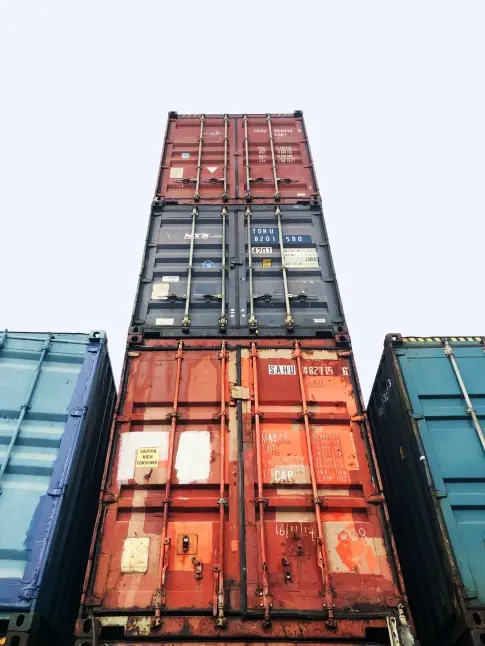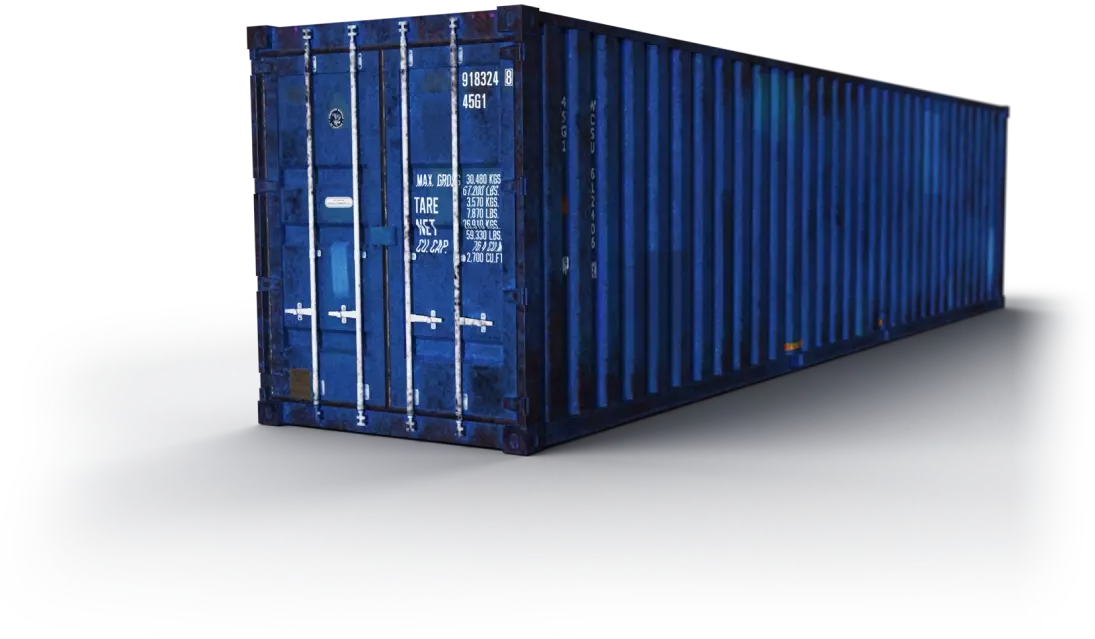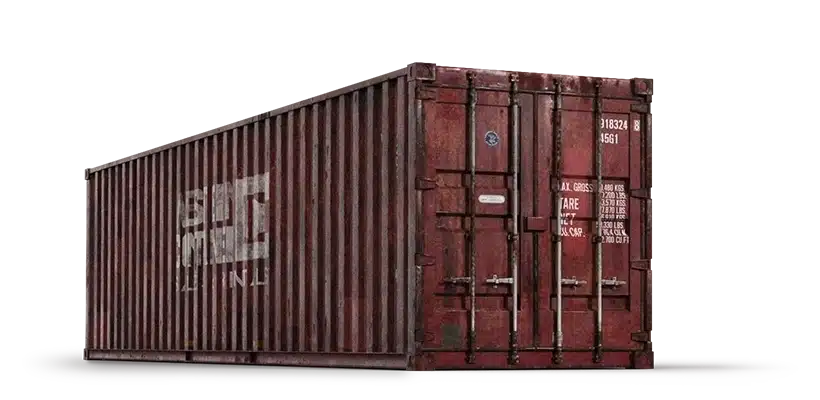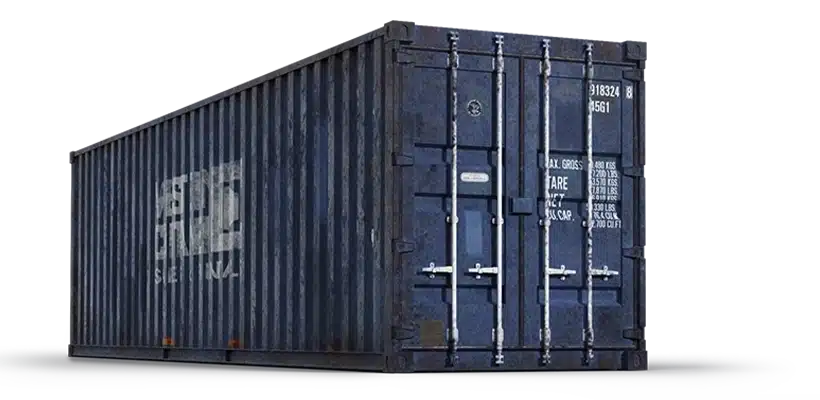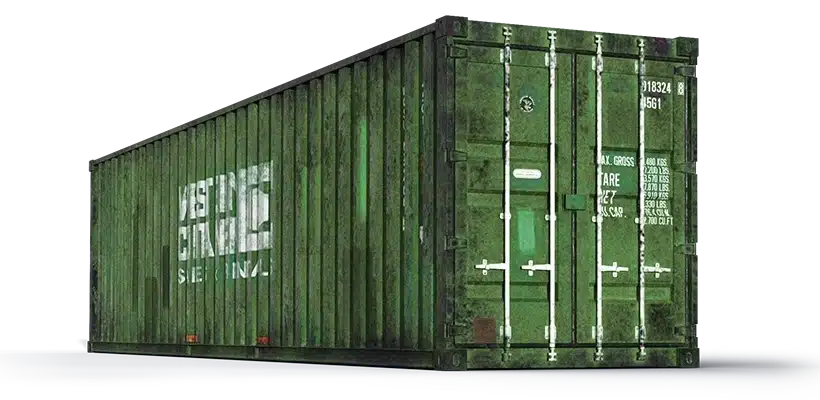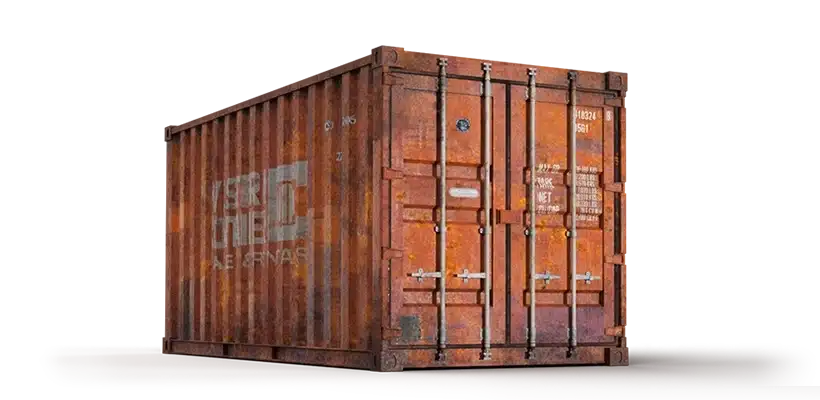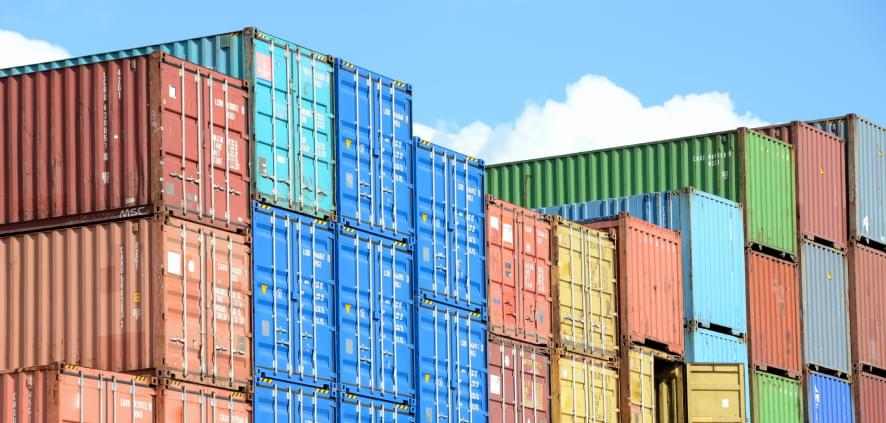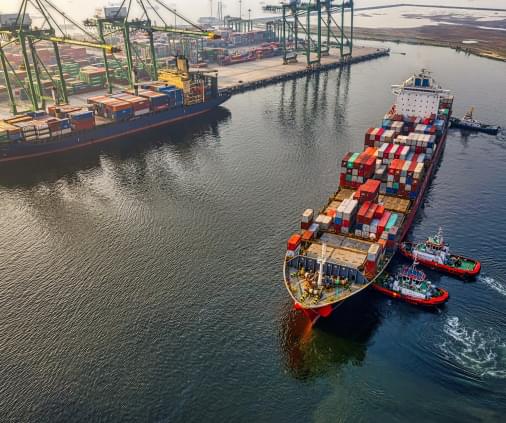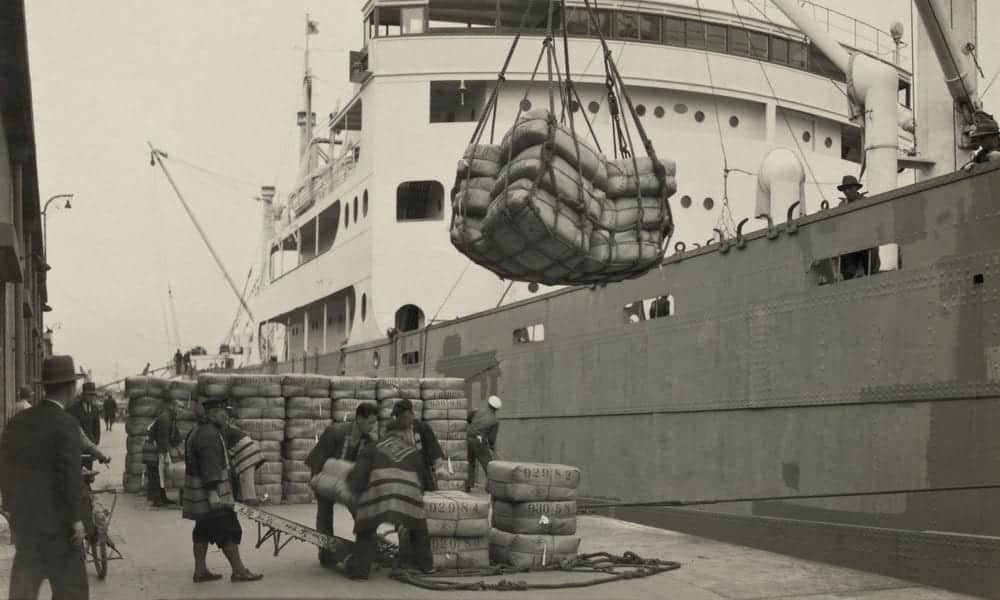Where do
shipping
containers
come from?
Most shipping containers, commonly called Conex or intermodal cargo containers, are manufactured in China and usually spend 12-15 years circumnavigating the globe on container ships. When international shipping lines and intermodal equipment providers are ready to take a container out of circulation we help you buy it at a wholesale price and deliver it to your facility.
Shipping
Containers
are Ugly
Used shipping containers are ugly. They've spent 12-15 years circumnavigating the globe and come with cosmetic blemishes, surface rust, and dings/dents from all their journeys. When your used shipping container is delivered it’s going to look like a used steel box.
The intermodal equipment companies that we source our used shipping containers from care only that a container's roof doesn't leak, the floors can support 40,000lbs of cargo, the structure is strong enough to stack them 7 units high, and the doors seal properly.
Despite how they look, used shipping containers are strong, wind and water tight, and perfect for long-term storage (and a fresh coat of paint goes a long way to making them look more presentable). For customers who need storage with no rust, we recommend One Trip containers.
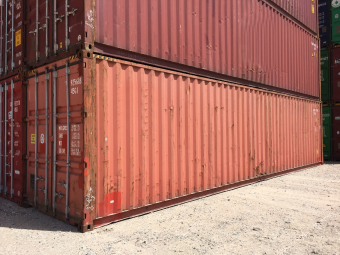
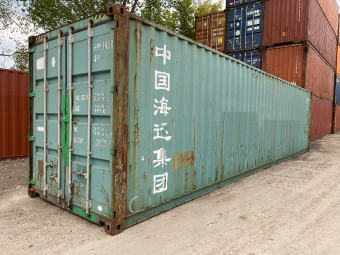
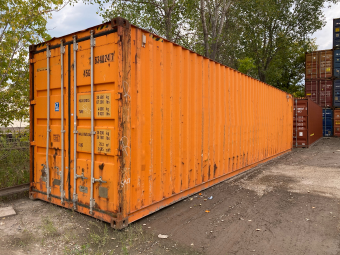
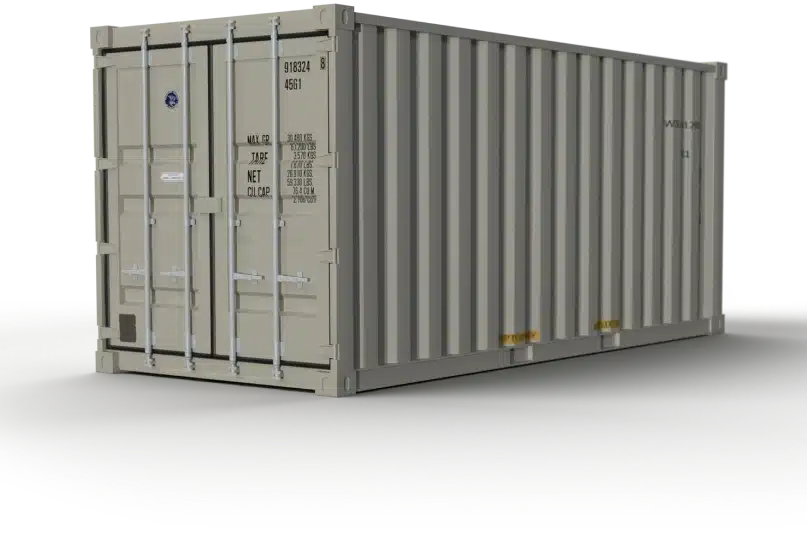
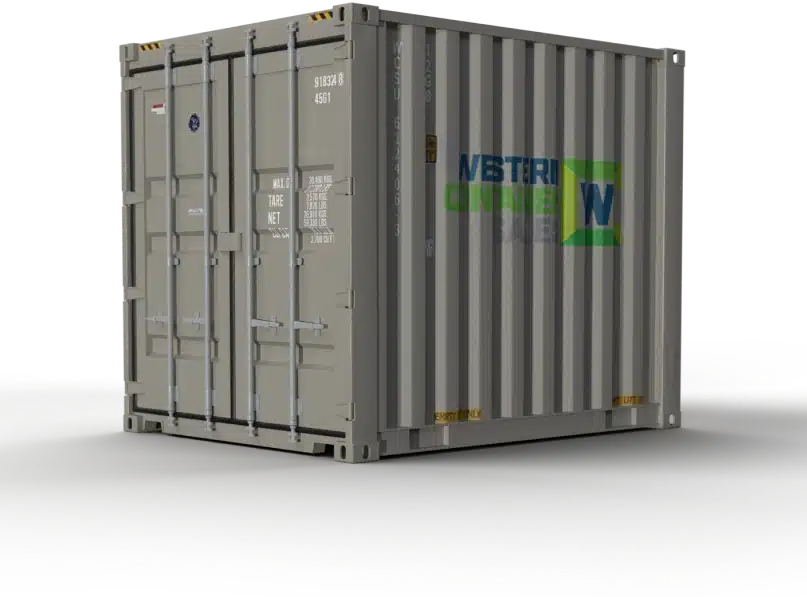
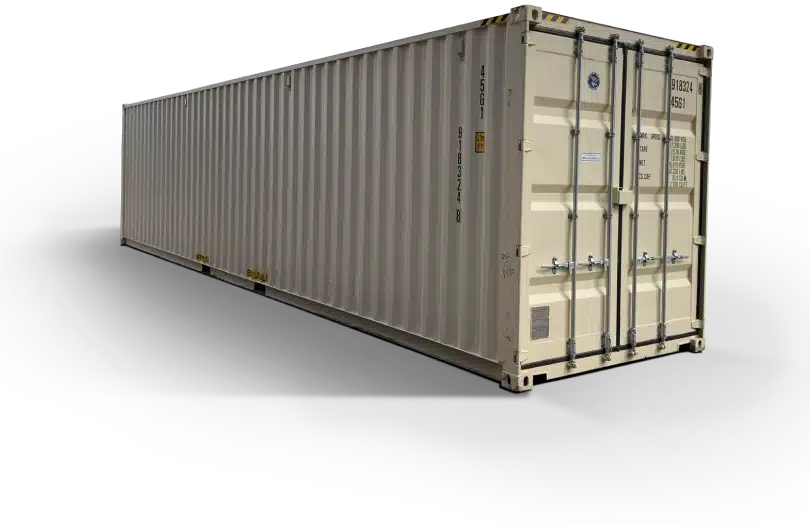
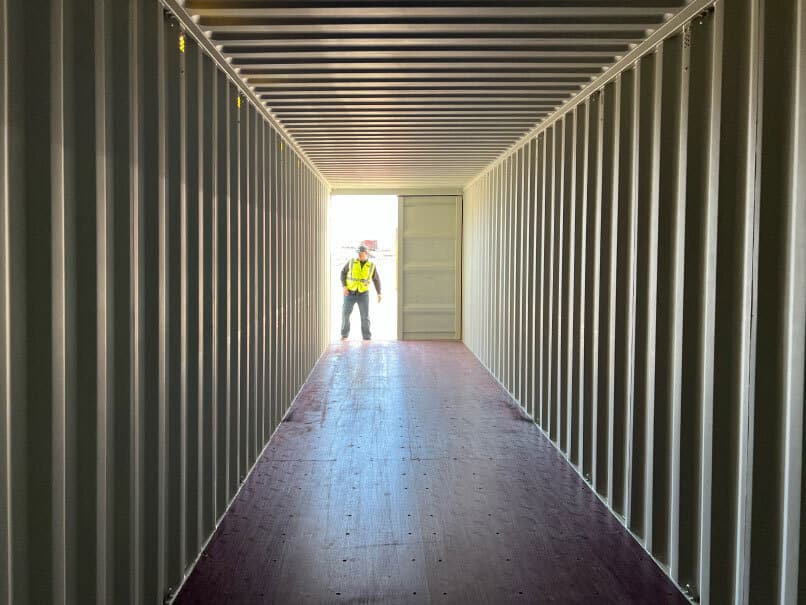
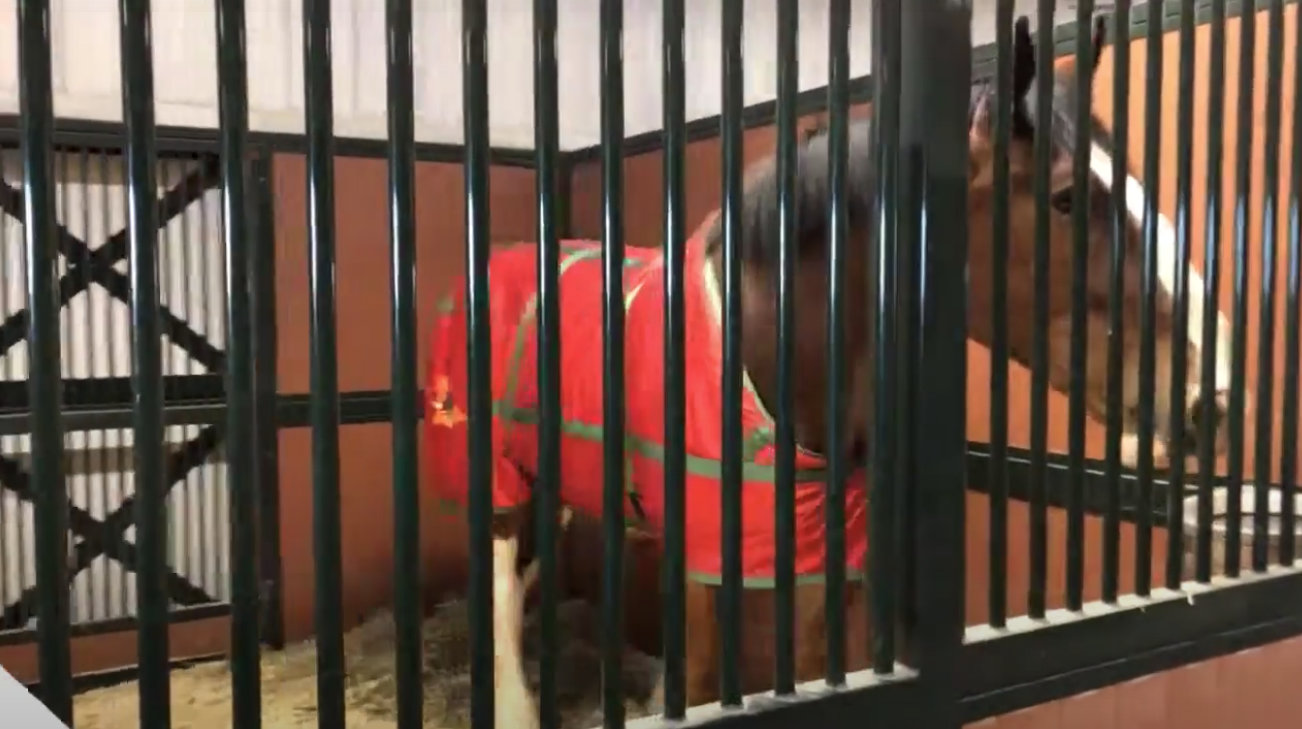
Used shipping
containers
come in a few
varieties
One Trip Containers
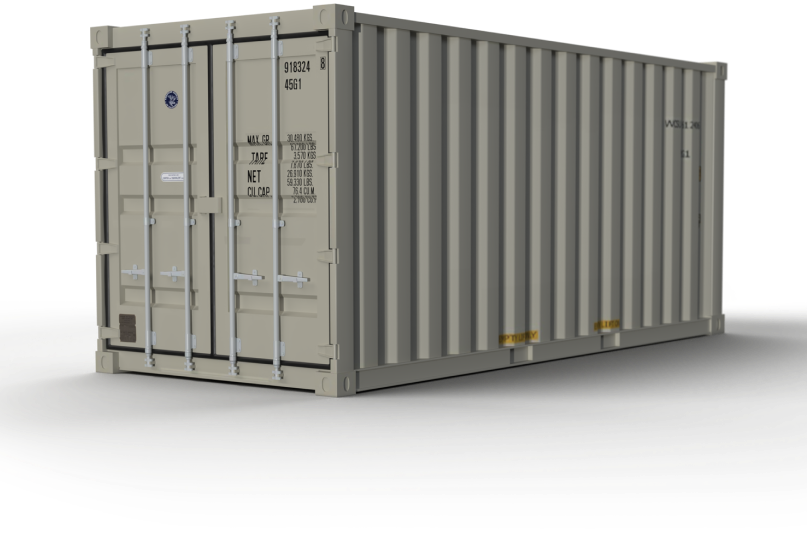
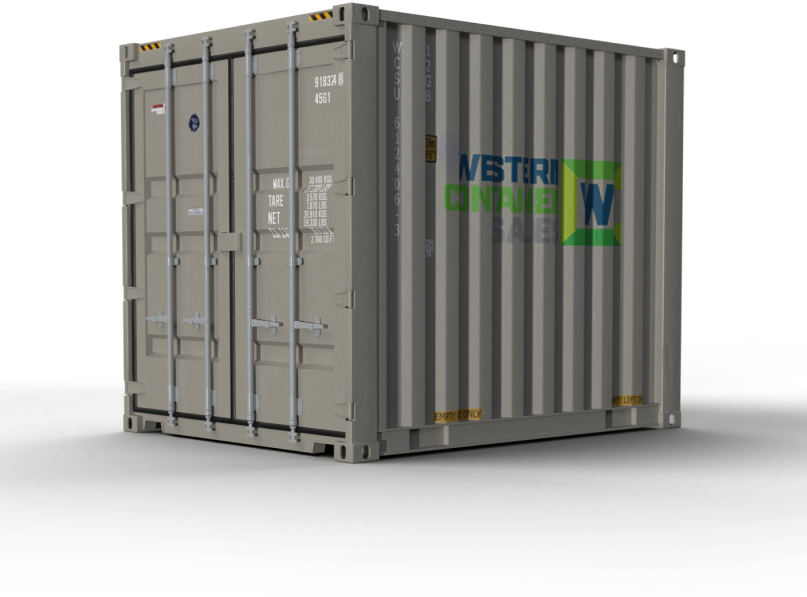
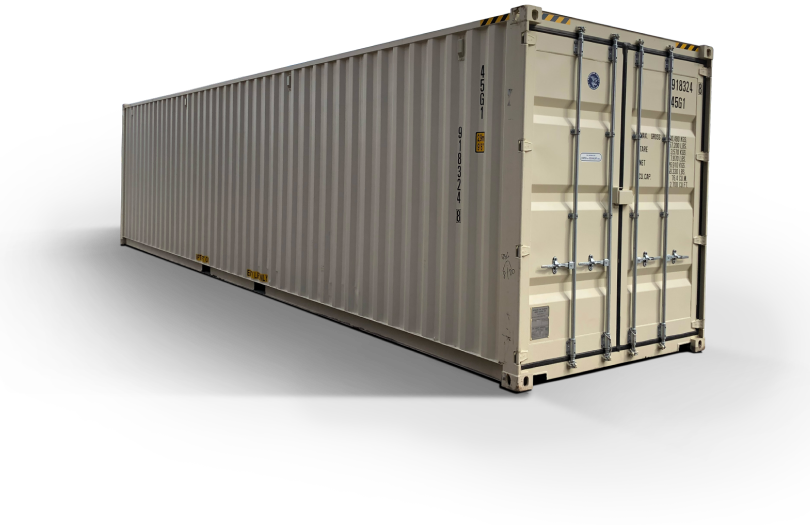
Commonly called Like New, these are in the best condition and are your best bet if you're worried about the cosmetic condition.
These Like New containers are generally within a year or two of their manufacture date and are in excellent condition inside and out with fresh grey or beige paint, though they will have a few dings or dents because containers are often bumped into one another during stacking.
Most One Trip containers have only taken one journey across an ocean on a container ship, but that's not strictly true. The term "one tripper" is more of a reference to a container in like-new condition. A brand new container in North America would need to be custom built and would cost about three times as much as a One Trip container from Asia.
One Trip container pricing is more closely related to the manufacturing cost than used container pricing, which is more about supply. Customers will see a much smaller price gap between 20' and 40' used containers than they will for 20' and 40' One Trip containers.
The rental fleet looks more like the One Trip, painted beige or grey, and comes with the option for doors on both ends (Tunnel). Rentals are only available in certain markets.
Watch the Success Story
Budweiser Clydesdales Training Facility in Missouri used a One Trip container to add to their storage.


Rental Containers
The rental fleet looks more like the One Trip, painted beige or grey, and comes with the option for doors on both ends (Tunnel). Rentals are only available in certain markets.
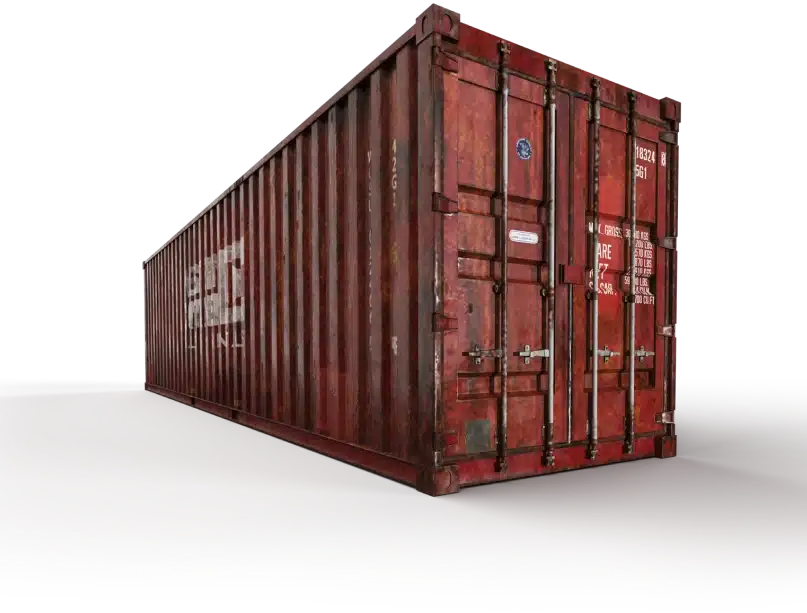
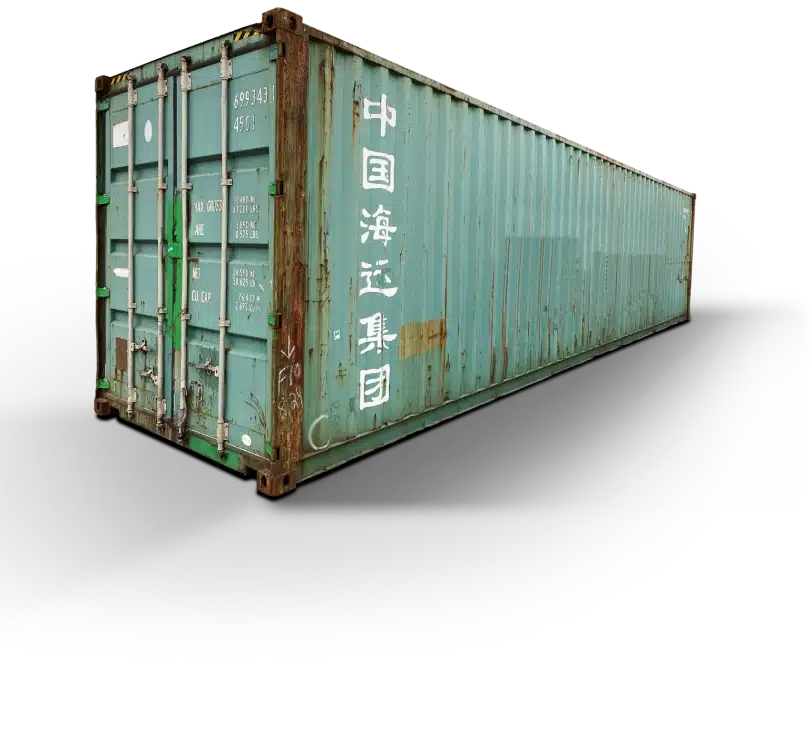
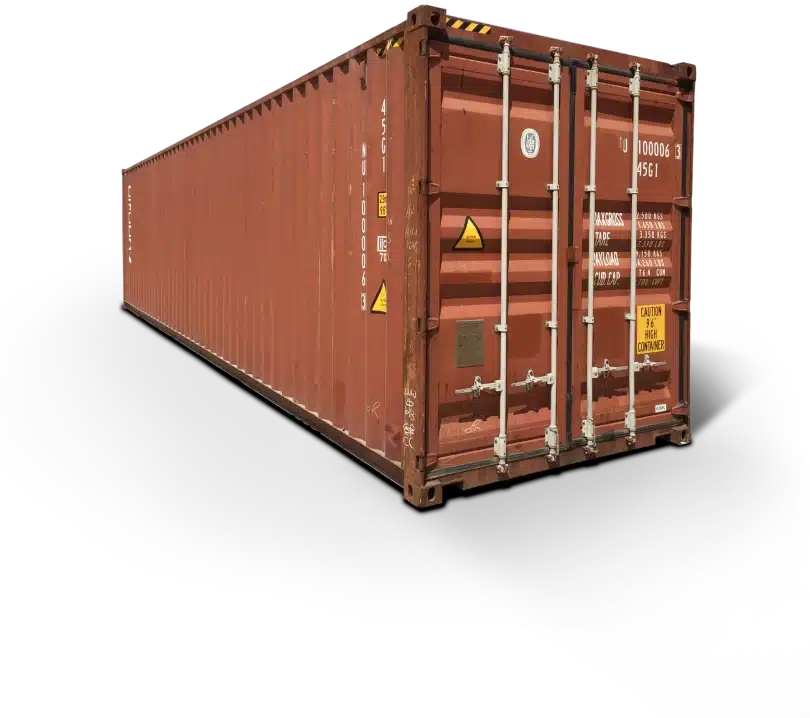
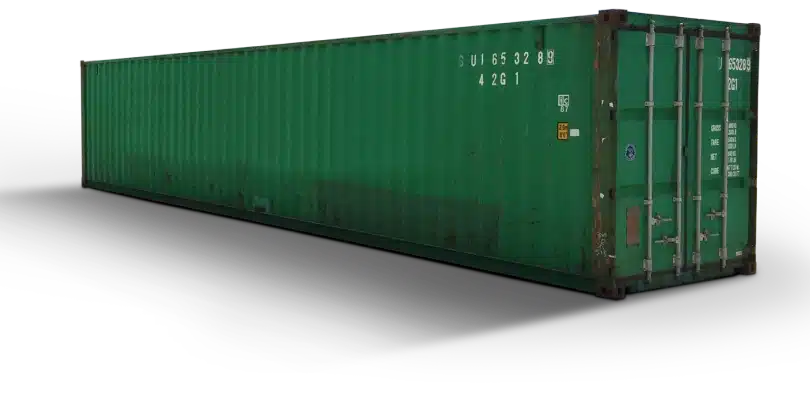

CWO & WWT Containers
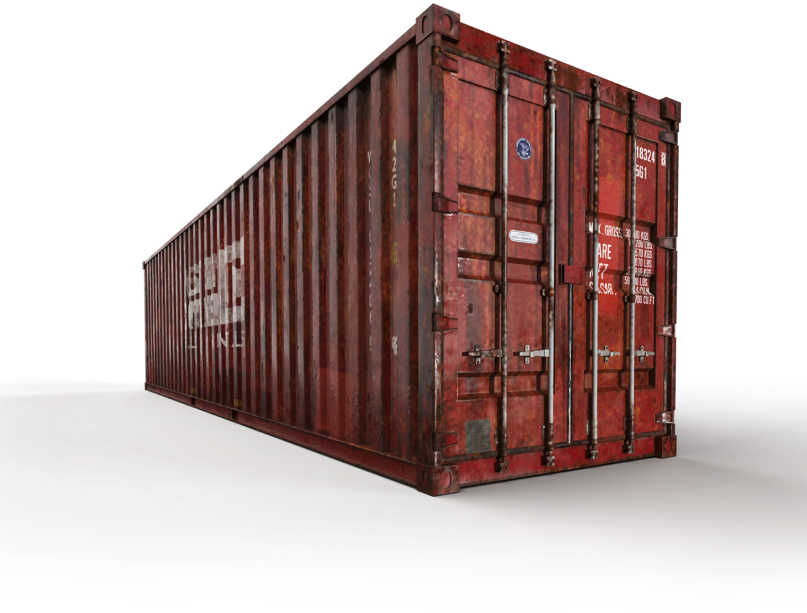
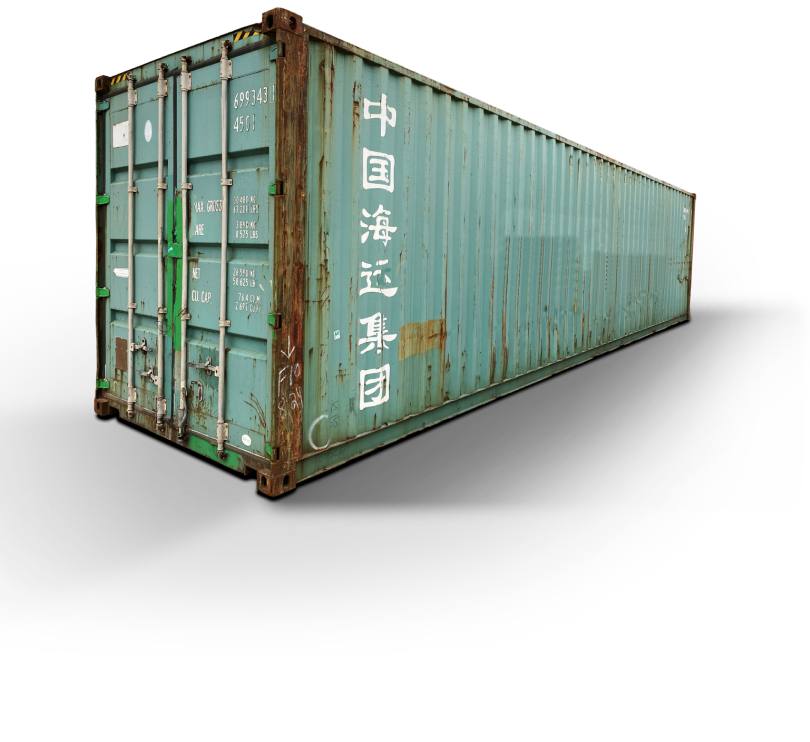
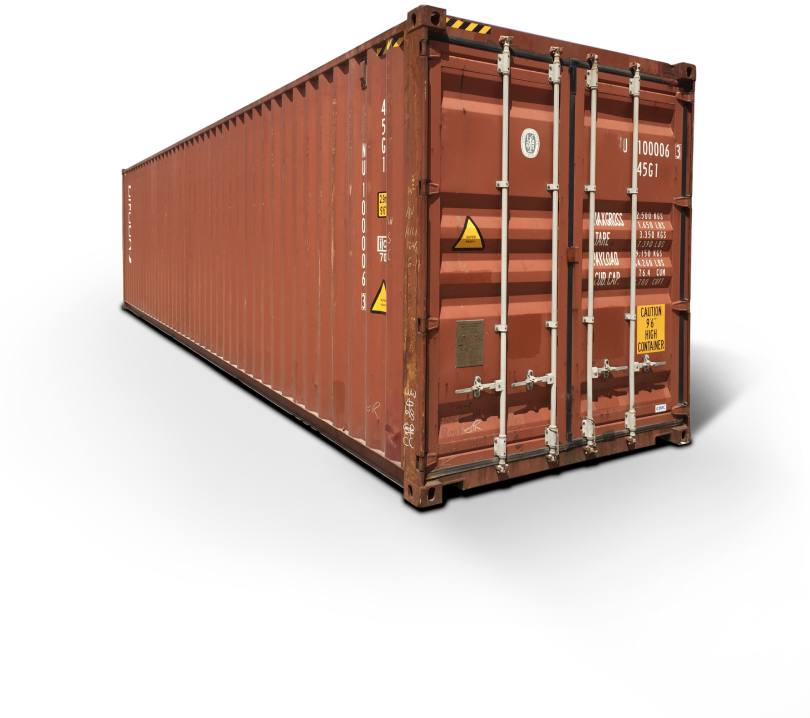
The used shipping containers that give you the most value for your money are Cargo Worthy (CWO) & Wind and Water Tight (WWT) containers.
Expand for more info on CWO & WWT containers
Used shipping containers have circumnavigated the globe for 12-15 years and have the dents and rust to prove it, but they make stellar storage containers on dry land.
The only real difference between a CWO and WWT container is whether it can pass a CSC Survey and be safely placed at the bottom of a stack of seven (7) loaded containers for shipment on a cargo ship. Both CWO and WWT are going to look similar: surface rust, dings and dents, etc.
Whether the used shipping container you purchase is WWT or CWO, it is going to look like a used metal shipping container. With either option, we guarantee that your shipping container won't leak, will have doors that seal, and floors free of holes. If you're worried about how it looks, pressure washing and painting used containers goes a long way.
CWO - Cargo Worthy Containers
CWO containers are used shipping containers that could still be CSC certified (International Convention for Safe Containers) for overseas shipment, and stacked up to 7-high on container ships. Cargo-worthy containers are generally in similar cosmetic condition to WWT containers (though, CWO units tend to be a couple years newer, on average).
WWT - Wind & Water Tight Containers
Wind and Water Tight used shipping containers are no longer able to pass a CSC survey and cannot be exported. All WWT condition containers can be repaired to CWO condition, and often the repair is as simple as patching a dent deemed too large or fixing a bent cross-member under the floor.
Some WWT condition containers were graded CWO but their CSC Survey expired, and the unit's shipping company decided to take it out of service. The unit may still be in "cargo worthy" condition and simply need a new CSC Survey. Some are even used for domestic shipping.
Wind and Water Tight containers make great storage units. While WWT containers are on average the oldest units we sell, they are covered by our 3-Year Warranty.
When choosing a used shipping container, it's not possible to pick the color of your container, you get the next one off the stack at the storage depot. If color or appearance is important, you can paint your containers or buy a One Trip that will come on beige or grey.
Watch the Success Story
BWI Airport Marriot painted their 40 foot WWT containers to fit with the style of the hotel.
 Success Story:
BWI Airport Marriot
Success Story:
BWI Airport Marriot



The used shipping containers that give you the most value for your money are Cargo Worthy (CWO) & Wind and Water Tight (WWT) containers.
Used shipping containers have circumnavigated the globe for 12-15 years and have the dents and rust to prove it, but they make stellar storage containers on dry land.
The only real difference between a CWO and WWT container is whether it can pass a CSC Survey and be safely placed at the bottom of a stack of seven (7) loaded containers for shipment on a cargo ship. Both CWO and WWT are going to look similar: surface rust, dings and dents, etc.
Whether the used shipping container you purchase is WWT or CWO, it is going to look like a used metal shipping container. With either option, we guarantee that your shipping container won't leak, will have doors that seal, and floors free of holes. If you're worried about how it looks, pressure washing and painting used containers goes a long way.
CWO - Cargo Worthy Containers
CWO containers are used shipping containers that could still be CSC certified (International Convention for Safe Containers) for overseas shipment, and stacked up to 7-high on container ships. Cargo-worthy containers are generally in similar cosmetic condition to WWT containers (though, CWO units tend to be a couple years newer, on average).
WWT - Wind & Water Tight Containers
Wind and Water Tight used shipping containers are no longer able to pass a CSC survey and cannot be exported. All WWT condition containers can be repaired to CWO condition, and often the repair is as simple as patching a dent deemed too large or fixing a bent cross-member under the floor.
Some WWT condition containers were graded CWO but their CSC Survey expired, and the unit's shipping company decided to take it out of service. The unit may still be in "cargo worthy" condition and simply need a new CSC Survey. Some are even used for domestic shipping.
Wind and Water Tight containers make great storage units. While WWT containers are on average the oldest units we sell, they are covered by our 3-Year Warranty.
When choosing a used shipping container, it's not possible to pick the color of your container, you get the next one off the stack at the storage depot. If color or appearance is important, you can paint your containers or buy a One Trip that will come on beige or grey.
Watch the Success Story
BWI Airport Marriot painted their 40 foot WWT containers to fit with the style of the hotel.

Dimensions & Specifications
The International Standard for Organization (ISO) requires that all containers are built to within a few millimeters of one another so they can be stacked on container ships without issue.
Containers are quantified in terms of twenty-foot equivalent units (TEU's) and are most commonly built in 20' and 40' lengths.

Container Delivery
Things to Know Before You Order a Shipping Container
We deliver containers on a roll-off trailer, so you won't need a forklift or a crane to unload at delivery, but you'll need to make sure you've got enough space for delivery and that your site is ready for the truck.
The trucks are Big,
and we need space to deliver.
One of the biggest considerations when determining what size container you should buy is where it will be delivered. You need a lot of extra space.
up to 120 feet


40 & 45ft container use a roll-off truck and need a total of 120 linear feet of space for the container to be dropped off.

10 & 20ft containers are delivered on a tilt-bed and need an additional 55 feet of space for the truck to deliver. That is 75 linear feet of total space necessary.

Both truck types need clearance from obstacles of 12 feet wide & 13.5 feet high (up to 16ft high when tipped at delivery).
The trucks are heavy,
and need a firm surface.
The truck that delivers your container could weigh over 45,000 pounds. If we're delivering on a soft surface (such as dirt or grass) please make sure your site can handle a heavy truck.
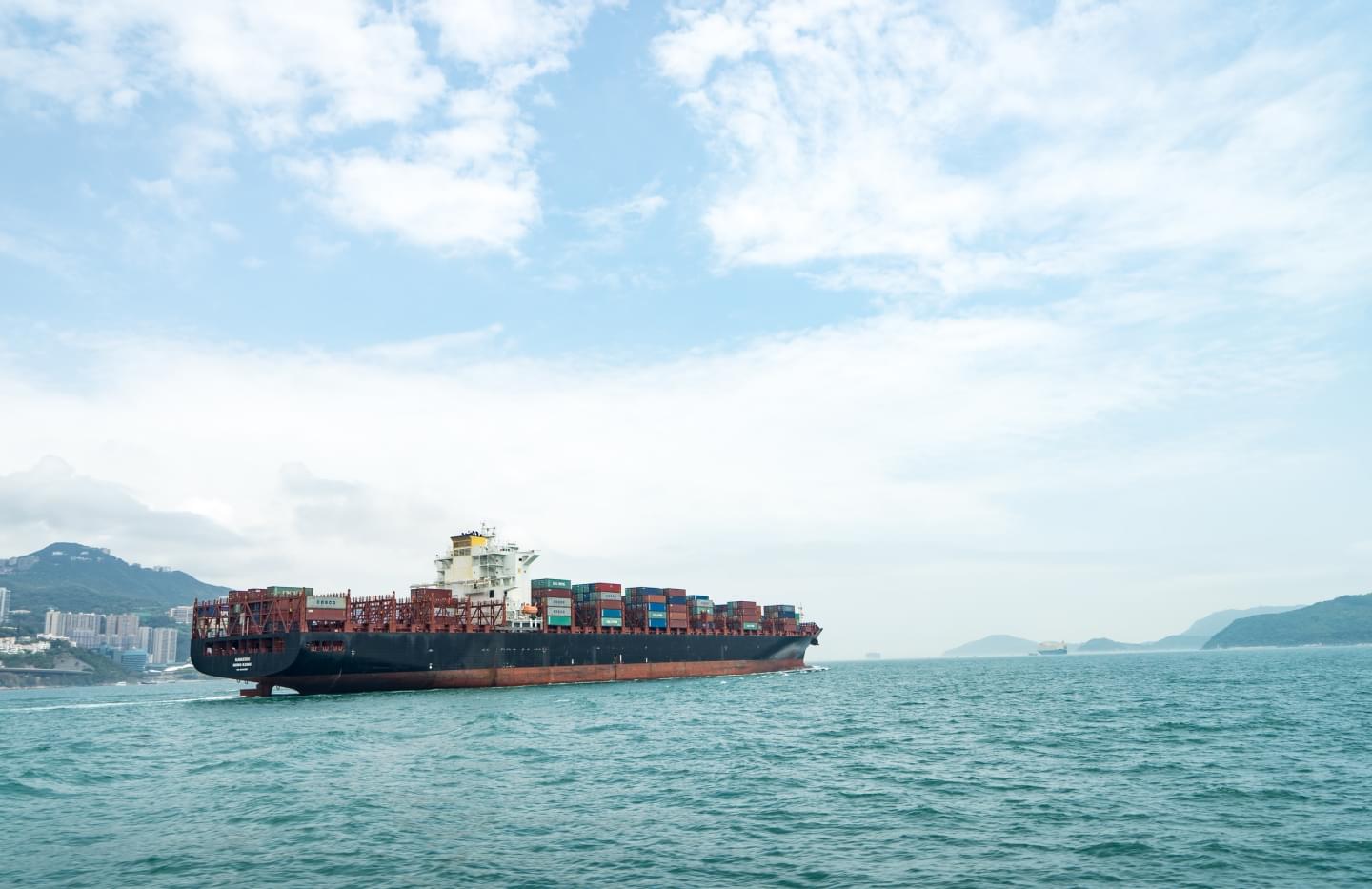
CSC survey required for container export
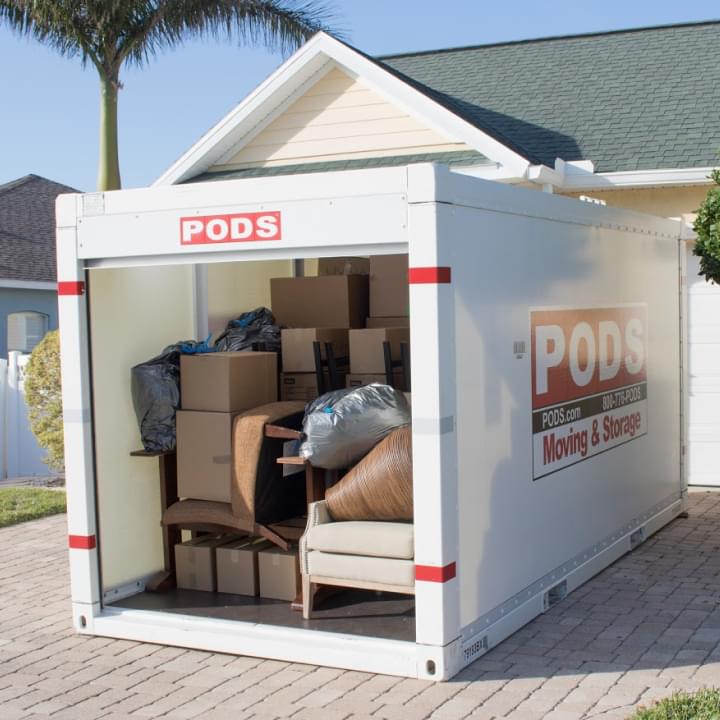
Need off-site storage or a container for moving?
Western Container Sales does not offer moving or off-site storage services. Luckily for you, we've negotiated special pricing with PODS for you.
Whether you need to relocate an employee across the country, or move your home across town, PODS can help with containers you can pack at your schedule.
LEARN MORE & GET DISCOUNTWe Price Match Quotes From Professional Competitors
Submit your quote from companies that use CDL drivers for deliveries for a price match request*
*we do not price match companies that don't use CDL drivers, and encourage customers to use caution if they buy from companies with "hot shot" delivery


